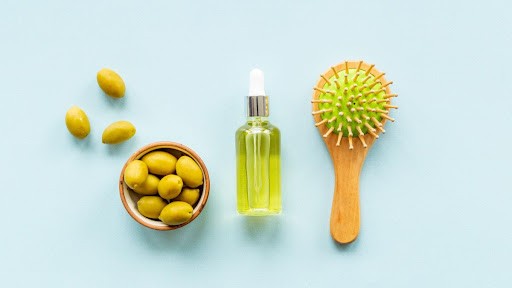
5 Top Olive Oil Benefits For The Skin
Olive oil has been used for centuries as a natural skincare ingredient due to its numerous benefits for the skin. Rich in antioxidants, vitamins, and fatty acids, olive oil offers a wide range of advantages that promote healthy, nourished, and youthful-looking skin. Let’s explore the top five benefits of olive oil for the skin.
Moisturization and Hydration:
Olive oil is an excellent natural moisturizer for the skin. It helps to seal in moisture, preventing water loss and keeping the skin hydrated. The fatty acids present in olive oil, such as oleic acid, nourish and soften the skin, making it smooth and supple. Regular use of olive oil can help combat dryness and improve overall skin texture.
Anti-Aging Properties:
Olive oil is a powerhouse of antioxidants, including vitamins E and A, which help protect the skin from oxidative stress and free radical damage. These antioxidants fight against the signs of aging, such as wrinkles, fine lines, and sagging skin. Olive oil also boosts collagen production, a key protein responsible for maintaining skin elasticity and firmness.
Skin Healing and Repair:
The anti-inflammatory properties of olive oil make it beneficial for soothing and healing various skin conditions. It can help reduce redness, inflammation, and irritation caused by conditions like eczema, psoriasis, and dermatitis. The antioxidants in olive oil also aid in repairing damaged skin cells, promoting faster healing of wounds, scars, and blemishes.
UV Protection:
While olive oil should not be used as a substitute for sunscreen, it does provide some natural sun protection benefits. The antioxidants in olive oil, particularly vitamin E, help to neutralize the harmful effects of UV rays and reduce oxidative damage caused by sun exposure. However, it’s important to note that olive oil alone is not sufficient for complete sun protection, and sunscreen should always be used when spending time outdoors.
Anti-Bacterial and Anti-Inflammatory Effects:
Olive oil possesses anti-bacterial properties that can help combat acne-causing bacteria and prevent breakouts. Its anti-inflammatory properties also help reduce swelling, redness, and irritation associated with acne. Regular use of olive oil can help maintain a clear and blemish-free complexion.
Buy: Famor Organic Natural Olive Oil Face Cream
Incorporating Olive Oil into Your Skincare Routine:
To enjoy the benefits of olive oil for your skin, here are a few ways to incorporate it into your skincare routine:
Cleansing:
Use olive oil as a natural cleanser by applying a small amount to your face and massaging it gently. Rinse with warm water and pat dry. This method helps to remove dirt, makeup, and impurities while moisturizing the skin.
Moisturizing:
After cleansing, apply a few drops of olive oil to your face and massage it into the skin. Focus on dry areas or areas prone to wrinkles. You can also mix olive oil with your favorite moisturizer for added hydration.
Face Masks:
Create a DIY face mask by combining olive oil with other natural ingredients like honey, yogurt, or avocado. Apply the mask to your face and leave it on for 15-20 minutes before rinsing off. This will nourish and rejuvenate your skin.
Body Moisturizer:
Apply olive oil directly to damp skin after showering to lock in moisture and keep your body soft and hydrated.
Scalp and Hair Treatment:
Massage a small amount of olive oil onto your scalp to moisturize and soothe dryness or flakiness. You can also apply a small amount of olive oil to the ends of your hair to tame frizz and add shine.
Conclusion
In conclusion, olive oil offers a multitude of benefits for the skin, including moisturization, anti-aging effects, healing properties, UV protection, and anti-bacterial benefits. By incorporating olive oil into your skincare routine, you can enjoy its nourishing and rejuvenating effects, promoting healthy, glowing, and youthful-looking skin.





